Friday, May 31, 2019
Thursday, May 30, 2019
Wednesday, May 29, 2019
Earth Day Avengers: Sustainability heroes at Buffalo
“The idea was to bring together a group of remarkable people, see if they could become something more. [To] see if they could work together when we needed them to fight the battles we never could.”
-Nick Fury, “The Avengers”
In dentistry, there is a constant battle between the mass consumption of disposables and environmental sustainability. As health care professionals, we not only have an obligation to the oral well-being of our patients but also to the well-being of the environment surrounding them. By adopting and promoting more eco-conscious practices, dentists have the ability to “become something more” and band together as “Sustainability Avengers” to fight the battle known as climate change.
The deadline for irreversible damage to our climate is quickly approaching. According to the journal Earth System Dynamics, earth’s “endgame” is set for 2035 — meaning that without a transition to clean energy sources by this time, we’ll reach the “point of no return” (PNR). After crossing that point, climate rates could increase 2°C per year, and the effects could be detrimental.
Plastic production is one the most significant contributors to rising carbon dioxide levels. Dentists use a plethora of plastic-based products, many of which are single-use. According to a study published in the March 2018 issue of Scientific Reports, toothbrushes are among the 92% of large fragments and objects found in the Great Pacific Garbage Patch. This floating landfill drifts throughout the Pacific Ocean and is more than twice the size of Texas. Plastic toothbrushes and floss take hundreds of years to decompose, whereas bamboo toothbrushes, now commercially available, only take three months to decompose in your backyard garden. Dentists contribute to this impact on the environment, and we should be among the first responders to avenge it.
Adopting a sustainable lifestyle doesn’t require a huge effort. You can start in dental school, even before you are an advocate in private practice. In April 2018, the Buffalo ASDA Sustainability Committee hosted its first Earth Day celebration event. During this evening CE-accredited event, over 200 dental students, staff, faculty, community dentists and predental students registered and received a free bamboo toothbrush. The keynote speaker, Dr. Lisa Knowles, spoke about easy ways to make a dental office green and eco-friendly, as well as the impact we have on our environment.
Here are some easy ways to be environmentally conscious in school and in your daily life:
Promoting sustainability in dental school
1. Organize a sustainability committee.
2. Promote recycling dental supplies and containers.
3. Switch to bamboo toothbrushes.
Adapting eco-friendly lifestyle habits
1. Try vegetarianism/veganism, even if only one day a week.
2. Use a reusable water bottle.
3. Walk, bike or carpool instead of driving.
4. Get informed. Keep up to date on clean-sweeps and new technology to reduce energy consumption.
Students can contact Buffalo ASDA’s Sustainability Committee for more eco-friendly ideas or information on how to set up sustainable initiatives in your school.
~Emily Waldman and Melissa Stoj, Buffalo ’21
Tuesday, May 28, 2019
What you should know about your FICO Score
Dental students have big plans for their futures, and we want to help you make the most of it. In our last Career Compass webinar, we received several smart questions from students about what impacts their FICO Scores. High credit scores can translate into better rates on your dental school loans, dental practice loans, mortgages and credit cards. Read on to learn about some key concepts and get tips to improve your score.
Terms to know
Debt utilization ratio: Your debt utilization is a simple calculation that starts with (a) how much of your available credit you use, divided by (b) your total available credit. For example, if you have a credit limit of $12,000 for a certain card but only put $1,200 on that card, your debt utilization ratio is 10% (that’s $1,200/$12,000). Lenders like to see low utilization rates because they believe this predicts a higher likelihood of repayment. When it comes to any debt ratio, you can make a change by decreasing your utilization or increasing your available credit.
Amount owed: 30% of your FICO Scores is determined by “amounts owed,” which FICO considers in relation to your debt utilization ratio. Amounts owed includes all types of debt, including credit cards, student loans, practice loans, mortgages, etc. For example, if you owe $80,000 in student loan debt and have another $5,000 of debt you’re carrying on a credit card from month to month, your total reported amount owed of $85,000 will be factored into your scores.
Credit cards vs. student loans
You might have heard that a large credit card balance will likely have more impact on your FICO Scores than a large student loan balance. But why?
FICO Scores consider that $5,000 credit card balance differently than the $80,000 in student loan debt. Student loan debt is a type of “installment debt,” where you pay back a fixed loan amount on a predetermined payment schedule. Credit card debt is a type of “revolving debt,” where your minimum payment due is determined as a percent of your outstanding balance as of the statement date.
“Revolving credit utilization ratio” is influential in determining your FICO Score. If your $5,000 credit card balance is on a credit card with a $6,000 credit limit (i.e., 83% utilization), then you’re inching closer to maxing out your card, a potential red flag for any lenders evaluating your credit. If, on the other hand, your $5,000 credit card balance comprises just 10% of your total credit limit of $50,000, research shows that your lower utilization pattern equates to lower risk and higher scores.
In contrast, installment loan debt such as student loans isn’t as heavily weighed by your scores, and establishing a pattern of responsibly paying down an installment loan over time can even help raise your scores.
Tips to improve your credit score:
- Establish a history of responsible, on-time payments. Making at least the minimum payment on time every month is equally crucial for student loans and credit cards, since payment history makes up the largest portion of your FICO Scores (35%). Consider setting up auto-pay so you never miss a payment. Starting autopay could even earn you cash. CommonBond offers a 0.25% interest rate reduction for automatic payments.
- Understand and optimize your debt utilization.
- Avoid applying for multiple credit cards within one year. Applying for three new credit cards will trigger three individual hard inquiries, each of which will stay on your credit reports for two years and may affect your FICO Scores for one year. The impact of an inquiry is usually fairly minor, but it depends on your credit profile. For instance, if you have a thin credit file with a short history, the impact of inquiries could be greater. Because FICO Scores only consider inquiries on your reports from the past year, you can time applications for new credit in a way that potentially avoids the negative effects of hard inquiries.
Have more questions about building your credit? CommonBond can help. Reach out to us at dental@commonbond.co. Looking to save money on dental school loans? Get started today at commonbond.dental/save.
Loans are subject to state law restrictions and are offered through CommonBond Lending, LLC, (NMLS #1179500).
Monday, May 27, 2019
Tools for managing a business while in dental school
When people learn that I started a business in dental school, they often wonder why. Thinking back to my first year, I knew I needed more. I was stressed. I had no outlet. I decided then that I needed to occupy my free time with things that I love. So, I bought a camera and a 35mm lens with some tax refund money from my gap year and started CM Photography LLC.
Fast forward to 2018 where I shot my first proposal, engagement, wedding and became a certified printmaker. I achieved my initial financial goal of grossing five-figures, and I’m so proud of myself to be able to say I did. But I couldn’t have done it without these four things.
1. Support systems. Dental school cannot be done alone. Owning your own business is the exact same. I would not be able to manage if I didn’t have my fiancé Tanya to assist me during my shoots or to help me relax after a stressful day. A powerful support system is essential to having the creative energy to trudge through the proverbial “mud.” Sure, you could do it alone. Would I suggest that? Zero chance.
Finish reading this article in the May issue of Contour magazine.
~Christian Mullin, Maryland ’20, Chapter Class Co-Social Chair
Did you know that you could sign up to receive an email whenever the digital issue of Contour is available? Log in to your profile, select “My ASDA” and update your publications preferences.
Friday, May 24, 2019
Thursday, May 23, 2019
Wednesday, May 22, 2019
What’s in my backpack?
I may forget my coffee mug or my apartment keys on my way to school, but I will always have my backpack with me. It’s my Mary Poppins bag of dental school essentials, everything I need to help get me through each day. Here are a few things you’ll find in my backpack:
Water bottle: I don’t go anywhere without my enormous blue water bottle. When days get crazy in sim lab and we only get emergency water breaks, I need to make sure I at least attempt to stay hydrated.
Deodorant: You never know when sim lab is going to get stressful.
Post-It Notes: I have never been one to keep a planner or follow any sort of schedule, so I attribute any passing grades to my Post-It Notes. They are the perfect size (honestly, sometimes too small) on which to fit a daily to-do list when life gets busy.
Laptop and charger: My laptop may be a given, but the charger comes in handy when your battery dies quickly (as mine does), and your school library doesn’t carry your computer’s brand for checkout.
Clipboard and printer paper: Being a left-handed writer, this is an optimal method of taking notes and studying. The spiral on typical notebooks always gets in my way, making it hard to study, and dental school is stressful enough as is. This is one less thing to worry about.
Blue-light glasses: These may be the best purchase I have ever made. I bought them when studying for NBDE Part I last spring. Before that, I thought they were a gimmick. Now I refuse to look at my computer for more than an hour without them.
Notebook: While I don’t like studying from a notebook, it’s perfect for keeping random notes in one spot. This notebook travels with me to leadership conferences, CE courses and lunch-and-learns. A simple date and subject on the top of the next available page allows me to store non-school-related information in one location.
Wireless computer mouse: This was a pre-NBDE Part I purchase; it also makes a world of difference in clinic where the touch pads are not especially responsive. My speed in filling out forms increased threefold when I started bringing my mouse.
Pilot G2 pen: Trust me, I will know if anyone tries to switch out my pen.
Ear buds: Try to get me to be productive without listening to music — it won’t happen. Late night studying and all-day sim lab is where I exhaust “New Music Friday” and my “Discover Weekly” playlists to stay current on the latest releases.
Occasionally, some things are added to my backpack, such as protein bars and coffee during finals. But these key items are essential to keeping me organized and productive. What’s in your bag?
~Janae Momchilovich, Marquette ’21, Legislative Coordinator Districts 6-7
Tuesday, May 21, 2019
Who will pay me if I cannot work?
Most people want to avoid thinking about getting hurt, but the fact is, injuries and illnesses do happen. The point isn’t to dwell on the negative but to focus on how income may be replaced in the event of an unforeseen health event. Disability income insurance is a way to manage this risk.
Many people get confused by all the different insurances available. But once you understand what you do or don’t have, you’ll be better equipped to determine who will pay you if you are unable to generate income.
Let’s start with the basics: health insurance
Depending on your level of coverage, health insurance may pay some portion of your doctor’s bills, medical tests, hospital expenses and medication. Health insurance does not help replace your income if you are disabled.
Disability income insurance
Disability income insurance pays you a predetermined amount if you suffer a disability and are unable to work. You will need to wait for a period of time (about three months or more) before the payments kick in, and the benefits period will depend on the terms of the policy. An individually owned policy, meaning one that you buy for yourself, likely makes the most sense for people leaving school. The right time to buy insurance is generally when you’re young: It’s more affordable and you’re healthy. We typically recommend occupation-specific or “own-occupation” coverage for people in the dental profession because it allows you to receive payment for your disability and still provides you with the option to generate income from a new occupation.
Group disability
Group disability may be provided by a practice or corporate entity. It may be more restrictive than an individual disability income policy.
For example, if you’re paying part of the premium, you don’t have the guarantees that the premium will stay the same. You don’t have the guarantee that the company that issued the policy will continue to issue that specific policy. And you don’t have the continuity of coverage if you leave that employer. Group policies should be viewed as supplemental, not be the main source of your disability income coverage.
Social Security coverage
Social Security has some disability coverage, though the definition of disability is restrictive, and it may be difficult to qualify for payments. Also, the coverage is minimal and unlikely to cover most dentists’ financial needs.
Long-term care
Long-term care insurance doesn’t pay you either. It pays for, or reimburses you for, nursing home or home health care expenses. In order for your long-term care insurance policy to kick in, you need to be unable to perform two of the six activities for daily living: toileting, bathing, transferring, eating, dressing and continence.
Your ability to generate income is likely your greatest asset. If something happened to you, it would have a significant impact on your cash flow. Whether you’re just starting your training or you’re already in practice, one of the first things you need to do is protect your ability to earn an income. While health insurance will help pay to get you back to good health, disability income insurance will help replace income while unable to work.
Work with an experienced adviser who understands the risk factors associated with the dental professions and can help you design and select a policy that’s appropriately suited to your needs.
~Alex Spiller, Financial Services Professional, Treloar & Heisel, Inc.
Treloar & Heisel and Treloar & Heisel Risk Management are divisions of Treloar & Heisel, Inc.
Insurance products offered through Treloar & Heisel, Inc.
Treloar & Heisel, Inc. does not offer health insurance.
The policy descriptions in this article are intended for general, informational purposes only. Please refer to your insurance policy for the binding policy definitions.
19-028
Monday, May 20, 2019
Friday, May 17, 2019
Thursday, May 16, 2019
Wednesday, May 15, 2019
Tuesday, May 14, 2019
Monday, May 13, 2019
Dentistry: A family tradition

Dentistry has long been a family profession beginning with my great uncle and my grandfather. This led to both my dad and my aunt following in their father’s footsteps. As I embarked on my first year of dental school in fall 2017, my cousin did as well.
My earliest memories of the dental profession include visiting my dad on the Air Force base and watching from my mom’s arms as he worked just beyond the operatory window. As I grew older, I remember looking through the AAOMS journal that would arrive in our mailbox and, despite some of the unpleasant pictures, being amazed by the before-and-after transformations that were possible in dentistry. It amazed me that a patient could go in with numerous problems with their teeth or mouth and within several visits, be transformed in the way they look and feel.
My family supports and encourages me in everything I dream, and one of these dreams has been becoming a dentist and continuing a great and rewarding family legacy. And part of this legacy is the strong focus on helping people through dentistry. When there were families who immigrated to the United States years ago, my grandfather provided dental services to help those in need. My dad has provided oral surgery services to priests and the St. Vincent de Paul Society through our church. Through the mentors I have had in my life, I learned that with the practice of dentistry comes the responsibility of giving back to my community. Whether it’s by providing dental education or low-cost services to those in need, giving back is one of the greatest gifts this profession offers.
Growing up around dentistry also has allowed me to observe the overall balance and stability it provides. I hope to one day have a family and give them what my family has been able to give me, as a result of the profession.
The journey throughout dental school continues to be rigorous. I am grateful to have the familial support system that I do. My family is able to relate to the intensity and pressure that dental school often demands. The legacy and tradition this profession has within my family often fuels my passion even more because I strive to uphold the ethics and values I have been taught throughout my life. Upon the completion of my second year, I am ready to accept the challenges and successes of my impending clinical experiences by serving my community as the best possible dental student.
~Anne Shedlosky, Texas A&M ’21
 A new study in JAMA Network Open found that almost 81% of antibiotics prescribed by U.S. dentists for infection prophylaxis before dental visits were unnecessary. The researchers examined data from more than 91,000 commercially insured patients to make this determination.
A new study in JAMA Network Open found that almost 81% of antibiotics prescribed by U.S. dentists for infection prophylaxis before dental visits were unnecessary. The researchers examined data from more than 91,000 commercially insured patients to make this determination.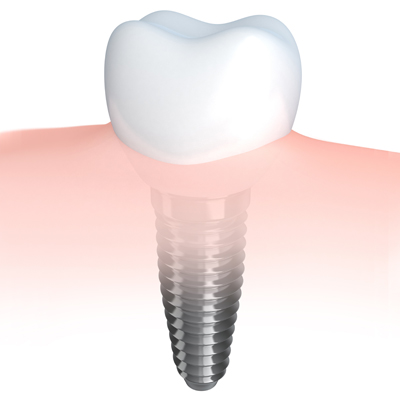 When it comes to implant failure, which type of implant is less likely to fail: smooth or sandblasted? A new study had surprising results.
When it comes to implant failure, which type of implant is less likely to fail: smooth or sandblasted? A new study had surprising results.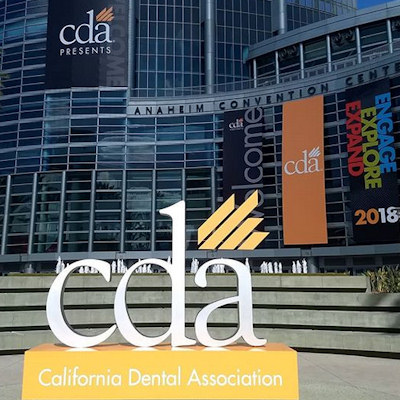 When it comes to creating a green dental practice, it's all about the little things, according to Lisa Knowles, DDS. Dr. Knowles spoke with DrBicuspid.com about sustainable dentistry at the California Dental Association's recent 2019 CDA Presents meeting in Anaheim, CA.
When it comes to creating a green dental practice, it's all about the little things, according to Lisa Knowles, DDS. Dr. Knowles spoke with DrBicuspid.com about sustainable dentistry at the California Dental Association's recent 2019 CDA Presents meeting in Anaheim, CA.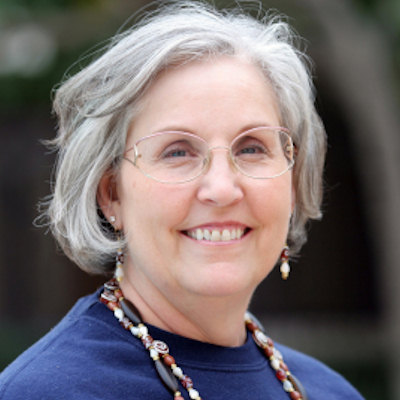 Less than 30% of U.S. adults 65 years and older had dental insurance in 2017, according to a new data brief released by the U.S. Centers for Disease Control and Prevention (CDC) on May 29. The research looked at dental insurance status, economic status, and more.
Less than 30% of U.S. adults 65 years and older had dental insurance in 2017, according to a new data brief released by the U.S. Centers for Disease Control and Prevention (CDC) on May 29. The research looked at dental insurance status, economic status, and more.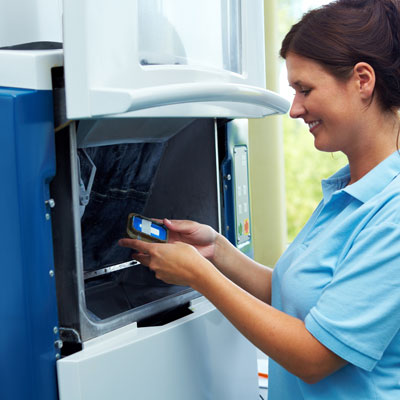 New technologies and materials have made it easier to create and repair restorations, but do these CAD/CAM materials hold up as well as more-established materials? Researchers put four of them through their paces.
New technologies and materials have made it easier to create and repair restorations, but do these CAD/CAM materials hold up as well as more-established materials? Researchers put four of them through their paces.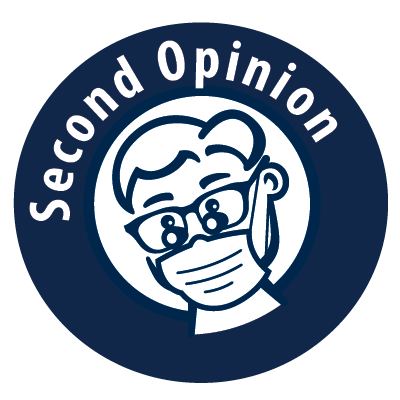 As a periodontist, Dr. Alvin Danenberg used to prescribe narcotic medication for patients who required it. Now after recovering from a fractured vertebra, Dr. Danenberg shares what it's like to have narcotics coursing through his body and what dentists can learn from his experience.
As a periodontist, Dr. Alvin Danenberg used to prescribe narcotic medication for patients who required it. Now after recovering from a fractured vertebra, Dr. Danenberg shares what it's like to have narcotics coursing through his body and what dentists can learn from his experience.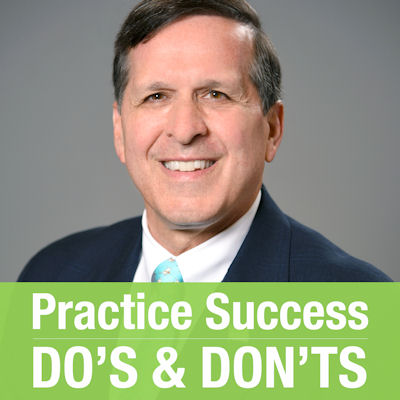 Case acceptance is critical to practice success. Unfortunately, it's not easy. It takes time and effort. Highly successful offices have mastered case presentation, which contributes heavily to overall practice production and profit. Dr. Roger P. Levin offers some practical suggestions for increasing case acceptance in his latest Practice Success tip.
Case acceptance is critical to practice success. Unfortunately, it's not easy. It takes time and effort. Highly successful offices have mastered case presentation, which contributes heavily to overall practice production and profit. Dr. Roger P. Levin offers some practical suggestions for increasing case acceptance in his latest Practice Success tip.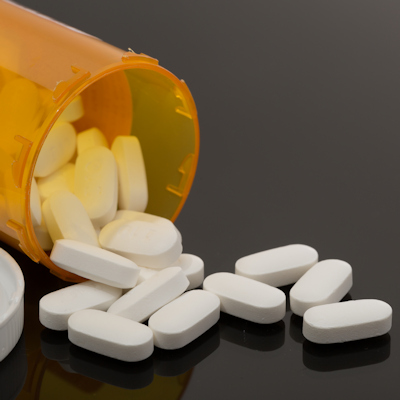 The percentages of oral health and dentist visits are about the same in the U.S. and England, but what about the rates of opioid prescriptions by dentists? Researchers looked at the most recently available data to compare the rates of prescriptions in the two countries and found a vast difference, according to a new study published in JAMA Network Open.
The percentages of oral health and dentist visits are about the same in the U.S. and England, but what about the rates of opioid prescriptions by dentists? Researchers looked at the most recently available data to compare the rates of prescriptions in the two countries and found a vast difference, according to a new study published in JAMA Network Open.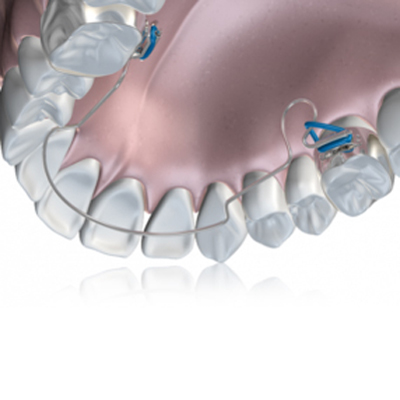 Childhood is when dentists and hygienists should be looking for early signs of malocclusion, writes Dr. Martin Gorman. One method to address this malocclusion is using an advanced lightwire functional appliance. Dr. Gorman reviews how this type of appliance can help.
Childhood is when dentists and hygienists should be looking for early signs of malocclusion, writes Dr. Martin Gorman. One method to address this malocclusion is using an advanced lightwire functional appliance. Dr. Gorman reviews how this type of appliance can help. The Dental Board of California is investigating the death of a 4-year-old boy who died after being sedated for a dental procedure at a practice in Oakland. The boy was undergoing an extraction under sedation but stopped breathing after experiencing complications, according to a post by relatives.
The Dental Board of California is investigating the death of a 4-year-old boy who died after being sedated for a dental procedure at a practice in Oakland. The boy was undergoing an extraction under sedation but stopped breathing after experiencing complications, according to a post by relatives.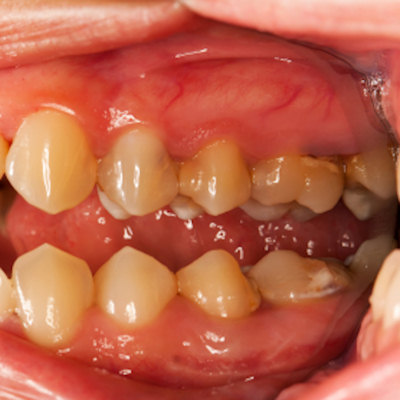 Rheumatoid arthritis (RA) and periodontal disease are both inflammatory, chronic, and progressive, but is there a link between the two? Researchers surveyed hundreds of patients with RA to find out.
Rheumatoid arthritis (RA) and periodontal disease are both inflammatory, chronic, and progressive, but is there a link between the two? Researchers surveyed hundreds of patients with RA to find out.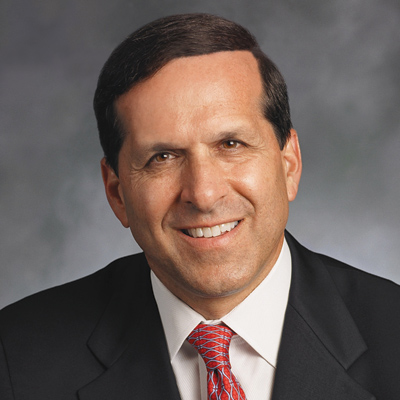 Employees like bonuses. Who wouldn't? Bonuses are something you can win with nothing to lose. And when your staff wins a bonus, you'll win as well because overall practice performance is guaranteed to improve. As Dr. Roger P. Levin writes in his latest column, having a practical bonus system benefits the entire practice.
Employees like bonuses. Who wouldn't? Bonuses are something you can win with nothing to lose. And when your staff wins a bonus, you'll win as well because overall practice performance is guaranteed to improve. As Dr. Roger P. Levin writes in his latest column, having a practical bonus system benefits the entire practice.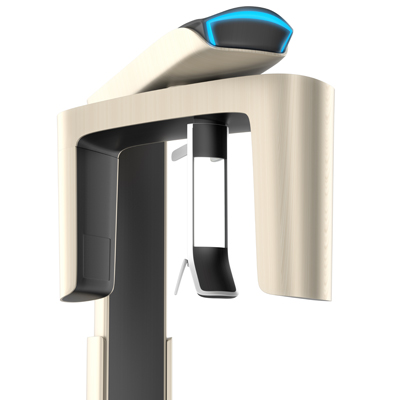 Correctly identifying the anatomy of a root canal is crucial for successful endodontic therapy. Researchers tested cone-beam CT and periapical radiography to see if either was more accurate than microcomputed tomography. They reported that practitioners should be aware of each modality's limitations.
Correctly identifying the anatomy of a root canal is crucial for successful endodontic therapy. Researchers tested cone-beam CT and periapical radiography to see if either was more accurate than microcomputed tomography. They reported that practitioners should be aware of each modality's limitations.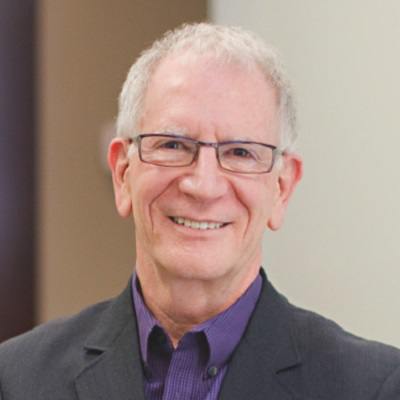 Periodontist Dr. Alvin Danenberg writes that dentists positively contribute to the health of our patients in many ways. In this Second Opinion, however, he details his ideas about how dentists and dentistry, as a whole, fall short in some key areas and how to address these shortcomings.
Periodontist Dr. Alvin Danenberg writes that dentists positively contribute to the health of our patients in many ways. In this Second Opinion, however, he details his ideas about how dentists and dentistry, as a whole, fall short in some key areas and how to address these shortcomings.
D.HuigensDDS
I don't do it anymore but after we stopped premed antibiotics after studies came out saying it was unnecessary but still wrote prescription for them when the M.D. requested the patient premed. Now we make the M.D. write the Rx if they want.
Now I might write 30 prescriptions a year for antibiotics or pain meds .
Few studies actually show how many Rx's are actually valid or, not needed at all. We all know that patients will benefit from a Rx even though they might not actually not need one for a short term treatment until they can get in for treatment.
After 36 years I have stopped writing much less than I use to but do write a Rx even though it might not be medically necessary but clinically be beneficial to the patient.
So, if dentists are writing way prescriptions way more than they should, where are they learning to do this in the first place?
If properly taught in the dental schools I would have thought that the number would have gone down over time since these studies have be in the forefront for several years now.